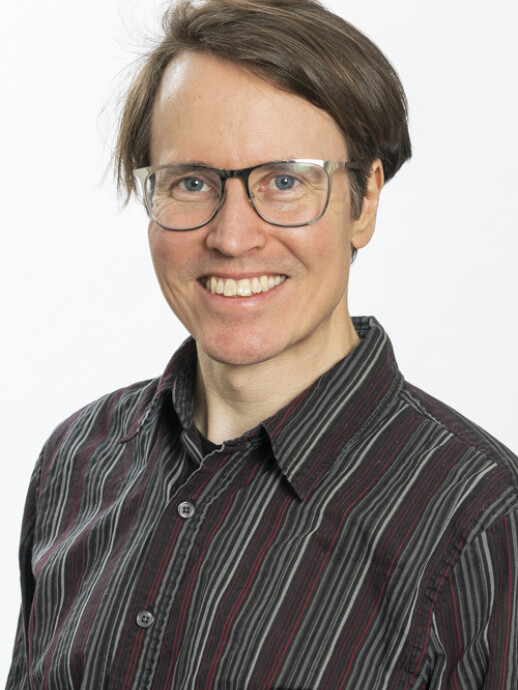
Nicolas
Balcom Raleigh
Links
Areas of expertise
Biography
Balcom Raleigh is a doctoral researcher interested in broadening societal understanding of how the futures which people imagine are linked to their capabilities to perceive potential change and innovate. He specialises in the futures literacy approach, futures literacy learning processes, and implementing Futures Literacy Labs. As a champion of co-design of research interventions and reflexive co-inquiry, his motto is: ‘No extractive research’. He is part of the Being(s) There(s) project led from the Economic Geography unit of TSE.
His PhD topic is complexity, transformation, futures literacy, and sustainability innovation. He works with climate change innovators - people who are working to address the climate emergency – to spark and nurture their futures literacy. Through co-inquiry, participatory action research, and forming communities of practice, these engagements aim to open mutually beneficial understandings about what futures literacy is, how this capability materialises and functions for specific groups, and its impacts on sustainability innovation processes.
He started at Finland Futures Research Centre in June 2015 as Millennium Project Intern and continued as a Research Assistant until becoming a Project Researcher in May 2017. In that role, he was part of several research project teams and successfully won funding and led the Futures Literacy across the Deep (FLxDeep) initiative from June 2019 to December 2020. He started his doctoral research in December 2020. he turned his attention to consulting roles and his doctoral research.
He is co-chair to the UNESCO Chair on Learning for Transformation and Planetary Futures at University of Turku; VP (2025-2026), Past President (2023-2024), and VP (2021-2022) of Foresight Europe Network; and served as an occasional independent consultant to international organisations including OECD (2022), UNESCO (2023), WHO (2023), and UNEP (2021-'22; and 2024).
Before becoming an academic researcher, he worked in the field of online communications for companies and a private college in Saint Paul, Minnesota. He has a master’s degree in Futures Studies (Turku School of Economics – University of Turku, May 2017) and a bachelor’s degree in English Literature and creative writing.
(Portrait photograph (C) Erich Goldmann, used with permission.)
Teaching
Balcom Raleigh’s pedagogical interests are experience-driven learning, communities of inquiry, participatory action research, and knowledge co-creation.
He has given several guest lectures about futures literacy. He has held skill-sharing sessions about the futures literacy approach and implementing futures literacy labs with various research project teams, both within Turku School of Economics and internationally. He co-designed and co-taught the Finland Futures Academy Summer School (2017) which was held as a UNESCO MOST Futures Literacy Lab, on the topic of Complex Futures of Human Settlements.
He was responsible teacher of FUTULAB3 Participatory Scenario Planning (2020-2022) in the Masters Degree programme in Futures Studies at Turku School of Economics. This course offers students a chance to build practical experience in participatory scenario planning with a case organisation. He co-taught the preceding version of the course, Scenario Thinking, with Amos Taylor in 2019; and with Markku Wilenius and Amos Taylor in 2018.
Research
Balcom Raleigh’s PhD research is about futures literacy and climate change innovation. In this research, he takes an interventionist research approach to explore the interrelations between complexity, transformation, capabilities, and imagination in sustainability innovation processes that are aimed at addressing the climate emergency. His PhD supervisors are Dr. Katriina Siivonen (University of Turku) and Dr. Riel Miller (formerly at UNESCO, currently a research fellow at several institutions). He further explores his doctoral research themes by analysing interview data from the Being(s) There(s) (BETH) project, funded by Research Council of Finland.
He led the Futures Literacy across the Deep (FLxDeep) consortium, funded by EIT Climate KIC (June 2019-2020), anchored in the KIC’s Deep Demonstration on Long-termism. In 2020, FLxDeep was a consortium of researchers, educators, and foresight practitioners at six partner organisations located in five European nations conducting a variety of cutting edge experiments for introducing futures literacy in system innovation processes (see ty.fi/flxdeep, 2019-2020).
He has been part of the following research teams (during the following timeframes):
- FuLiBRe (2024-03/2025), Futures Literacy for Business Renewal, funded by Foundation for Economic Education (Finland). Exploring means for co-creating futures literacy games as learning spaces in innovation networks.
- SUSCON (2021-2022), funded by Business Finland, aimed at fostering sustainable innovation in shipbuilding networks. He was part of the foresight team and led work on introducing futures literacy to project partners.
- Disruption Lab of the Centre for Collaborative Research (2021) placing attention on how futures literacy is related to the concept of disruptions in business thinking.
- EIT Climate-KIC Deep Demonstration on Long-Termism (June 2019 – 2021) - a consortium seeking to foster long-termism in finance, politics, business and wider society as a means to raising collective ambition and prioritisation of addressing severe long-term consequences of climate change.
- Bioeconomy and Justice (BioEcoJust), funded by Academy of Finland (January 2018 to December 2020), explored justice and ethical issues that could arise from a full transition to bioeconomy up until year 2125.
- Future Potentials of Big Data for European Growth Corridor Development targeted analysis funded by ESPON (May 2018 to August 2019) experimenting with data sources and a conceptual framework from geography to explore possible uses for big data to inform multi-nation, multi-scale policymaking concerning mobility corridors in Europe.
- Futures of Cities and Communities (May 2016 to December 2017) project focusing on complexity and futures of mobility in Turku 2050.
- Benchmarking International Master's Degree Programs in Futures Studies (January to March 2016) which involved desk research to identify exceptional masters' programs for comparison, internal interviews to explore program development ideas, and an internal workshop.
- Millennium Project's Future of Work/Technology 2050 (June to December 2015), a delphi study exploring the potential impacts of AI and 'General AI' on work.
- NeoCarbon Energy Project funded as a Tekes strategic opening (June to August 2015) exploring pathways toward emissions-free energy systems by 2050.